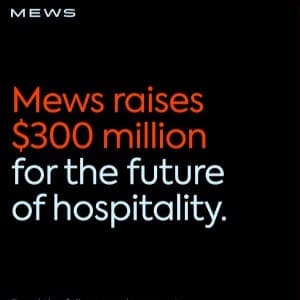 Measures to tax and license Òtransient accommodationsÓ such as Airbnb online rentals are advancing in the New Jersey Legislature. New Jersey Tourism Industry Association Executive Director Joseph Simonetta outlined an update to an interested audience at a Southern Ocean County Chamber of Commerce breakfast meeting recently.
Measures to tax and license Òtransient accommodationsÓ such as Airbnb online rentals are advancing in the New Jersey Legislature. New Jersey Tourism Industry Association Executive Director Joseph Simonetta outlined an update to an interested audience at a Southern Ocean County Chamber of Commerce breakfast meeting recently.
First, to clarify what the bills are not: They do not apply to listings done through a real estate agency. Instead, the bills intend to regulate rentals done through the up-and-coming online portals.
Mr Simonetta said regulating online transient rental portals is something that the Tourism Industry Association has been Òpushing for, for quite some time.Ó
Reasons given are both to add more income to the state coffers (part of the existing hotel/motel tax goes to support the arts and tourism promotion, Simonetta noted), and for municipalities to be able to license the rentals for safety reasons.
A-4587 ÒImposes State sales and use tax and hotel and motel occupancy fee on transient accommodations; authorizes various municipal taxes and fees on transient accommodations,Ó reads the bill’s definition. It would impose the same taxes and fees on the marketplaces that hotels and motels must pay in the state.
It passed the state Assembly by a 45-29 vote on May 22. It was received in the Senate on May 25 and sent to the Budget and Appropriations Committee.
A related bill, A-4441, is pending in the Assembly Appropriations Committee. With similar wording, it ÒAuthorizes prohibition, or licensure and regulation, of rental of certain space for accommodation of transient guests.Ó
Taking numerous questions from the audience, Mr Simonetta also clarified what ÒtransientÓ means in this case.
ÒA transient basis is under 29 days or less,Ó he said. “If you’re renting your home on an annual seasonal basis, you’re exempt from this. If you have your home listed with a Realtor … you’re exempt from this.
ÒWhat this applies to are those individuals who have turned their home into a transient rental through an online portal.Ó
The online websites have grown with property owners who want to make some money, and with renters who get more choices if they are willing to take some risk.
The most well known of the new online portals, Airbnb, was used by about 6,100 residents in New Jersey last year, statistics show. A total of about 257,000 people partook in these rooms, apartments and houses. The plan was a moneymaker of $50 million in total to the hosts who rented them out.
As an aside, MrÊSimonetta told this true anecdote: ÒI didn’t know that Airbnb started in San Francisco with four guys who lost a roommate and rented out a room with an air mattress.Ó
The hospitality industry complains that it is unfair that these accommodations are not taxed when state law does tax hotel and motel rooms. Current law also allows municipalities to impose certain taxes and fees. If legislation is passed and signed by the governor, theÊlaw would expand to include the now-debated transient short-term rentals.
Rental websites such as Airbnb and HomeAway Òserve an important part of our tourism economy,Ó Mr Simonetta acknowledged, Òjust like Uber serves an important service in the transportation industry, but Uber tries to operate outside regulations, and Airbnb and HomeAway are trying to do the same. … We’re trying to capture the people who are in the underground economy, who have absolutely no regulations, no oversight.Ó
A sponsor of A-4441, Assemblywoman Valeri Vaineri Huttle (D-Bergen), has said: ÒWe want residents and tourists to enjoy the options provided by companies like Airbnb, but not at the expense of neighbors who live there on a permanent basis. This legislation creates a baseline registry that municipalities can implement as they see fit.Ó
Added Mr Simonetta to the Southern Ocean Chamber audience: ÒThis second bill requires anybody who decides to use their individual home to rent, through (sites such as) Airbnb or HomeAway, to register through their municipality … assume all codes and regulations that you would have to if you were renting your property out on an annual basis.
ÒIt’s basically saying if you are going to take a home in a residential area and turn it into a short-term rental, your neighbors have a right to know about that, the town has a right to know about it, the people that are coming in there have a right to be assured that the property is properly coded for fire and safety hazards Ð the appropriate things that every other hotel would have to do.Ó
Municipalities already have statutory authority to regulate whole-house rentals, Mr Simonetta said, but do not currently have that authority with rentals through a web portal.
ÒThat’s what this is, basically; it’s expanding the oversight to include this new technology,Ó he said.
Web portal companies have been testifying against the proposed legislation. The legislation would take effect immediately if enacted, but observers doubt that it would pass in time to take effect this summer.
By Maria Scandale from The Sand Paper
Want to keep up to date with industry news? Click here to subscribe toÊeHotelier’s dailyÊe-newsletter.
















